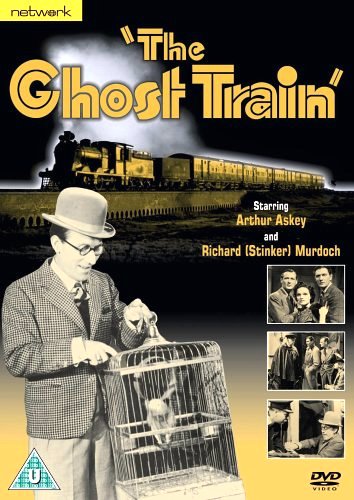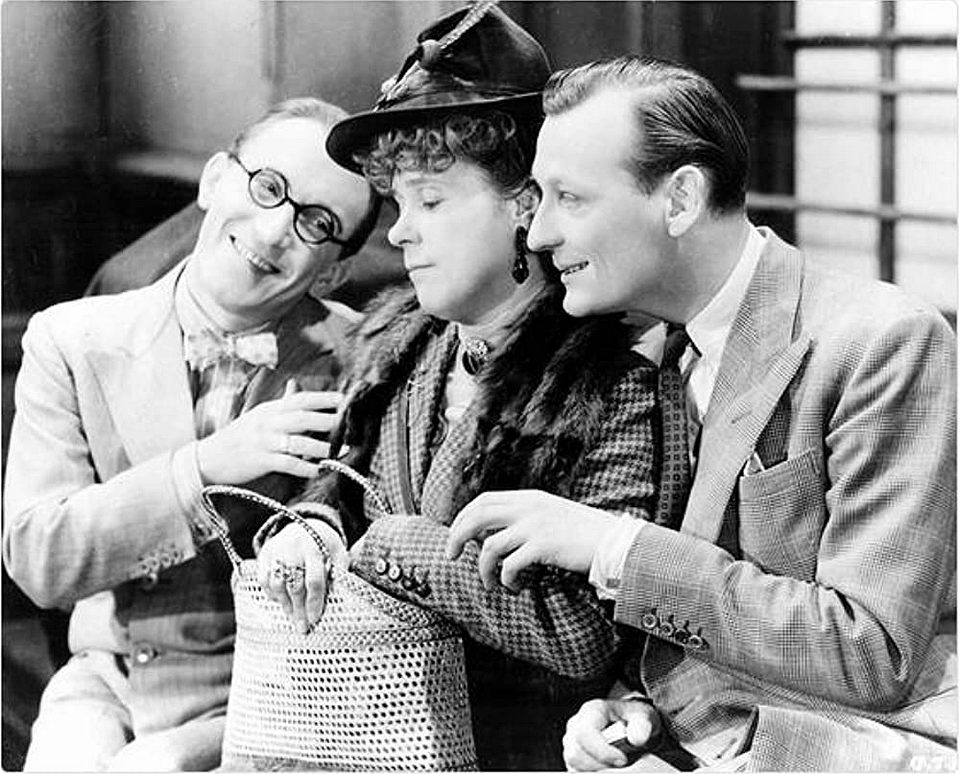

The 1941 Ghost Train hurtles through Cornwall
There have been many movie versions of the 1920s play The Ghost Train written by Arnold Ridley who is more famous as a star in the TV series Dad’s Army. If only Ridley had realized how exploited his tale would become, he could have enjoyed enormous royalties for life. But he sold his rights early on and could only watch as others profited from the media presentations.
The 1941 film is the best-known adaptation for the silver screen. An atmospheric piece, it tapped into contemporary fears of a nazi invasion whilst combining comedy and thriller suspense. The star, for better or worse is Arthur Askey who sets off a chain-reaction when he pulls the communication cord on a train in order to collect his hat which blew away when he looked through a corridor window.
Consequently, the train was late arriving at a rural Cornwall station and all the passengers found they had missed their connection to Truro. Bedding down at the station for the night, they are lectured by the station master how unwise they would be to stay. He tells them of a train crash fifty years ago which has resulted in a ghost successor thundering down the track on some nights and killing anyone who dares to look. “If this be a natural thing,” he growls, “where do it come from and where do it go?”

The film’s main failing is that Askey looks as if he is doing a one man show. The story and the other characters end up being shunted down a siding so that Askey can take center-stage and regale his fellow passengers, and us, with face-pulling, pratfalls and toe-curdling jokes. His presence is both a curse and a blessing – he lightens the mood and heightens the intrigue but his relentless attempts at humour soon become tiresome. And more.
When the film does manage to concentrate on the plot, we find out that the ghost train with whistle blowing at full pelt is actually a cover story put about by nazi sympathisers. There is a real train indeed – one which loads guns galore at a Cornish seaside village to be used by fifth columnists once the Germans actually begin their invasion of England. The threat of British citizens supporting Adolf Hitler was actually a significant theme at the time, following General Franco’s claim a few years earlier that his supporters inside Madrid had helped to destroy the ant-fascist government then in charge of Spain’s capital city.
The other actors do their best but Askey’s dominance is too strong. Richard Murdoch turns out to be a policeman on the lookout for spies and saboteurs. But Herbert Lomas plays the station master is in fact the fascist ringleader. Kathleen Harrison plays a single lady with a parrot which Askey teaches to say Heil Hitler in ridicule. Morland Graham plays a doctor with a shady past and a fondness for whiskey. Raymond Huntley, fresh from a role in Dracula, plays a local dignitary with a sister who claims to be deranged after seeing the aforesaid train some time previously. There are others. But as soon as they look interesting, Askey pops up to take control by making them look ridiculous or superfluous. You might see there is a party and Askey’s role is to piss in the punch bowl.
But it all ends well. The train carrying the arms falls from a bridge after Askey manages to change the points. The remaining fascists are picked by by the Cornish police and Askey continues on his way to give his performance at a Truro theatre as a vaudeville performer. His career as Tommy Gander (his name in the film) was making money from joking. Bet you are glad you weren’t there for that.
 |
 |
 |





